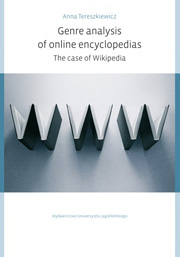2 - Genres on the web
Published online by Cambridge University Press: 05 September 2014
Summary
Genre theory on the web
The advent of the web has initiated far reaching transformations in the area of genology. The development of the World Wide Web has been accompanied by a dynamic growth in the number of various text types appearing on the web. Traditionally, the course of genre evolution and modification was slow, with new forms emerging gradually (Witosz 2005). What we are observing nowadays are dynamic and intense transformations of genre forms instigated by an array of new technologies.
Genre theory was introduced to the research of World Wide Web by Yates and Orlikowski (1992). The concept has since then been frequently exploited in the analyses of web pages and digital documents. Scholars underline the usefulness of the application of the genre concept in the study of the web and emphasize that genre studies can enhance our comprehension of the evolution of text-types and communities inspired by technology (Boese 2005). Crowston and Williams (1997) consider the web an excellent place for the study of new types of genres due to its architecture, devoid of a central management and the enforcement of genres, which enables freedom of expression and the possibility of experimentation. The scholars also underline the fact that the openness of the medium attracts many different communities which have experiences with different genres and use the internet for various purposes, which contributes to genre change.
- Type
- Chapter
- Information
- Genre Analysis of Online EncyclopediasThe Case of Wikipedia, pp. 21 - 28Publisher: Jagiellonian University PressPrint publication year: 2010



